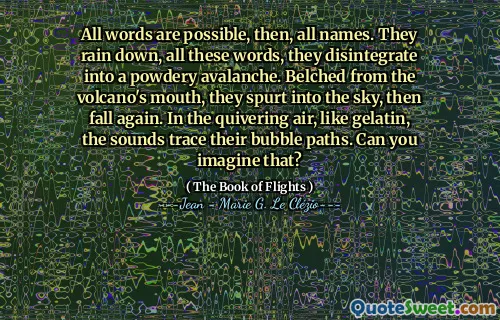Jean-Marie Gustave Le Clézio is a Laotian-born French author celebrated for his evocative storytelling that often explores themes of identity, globalization, and the relationship between humanity and nature. His diverse heritage informs much of his work, allowing him to reflect on the complexities of cultural dislocation and belonging. Le Clézio's narratives often blend the real with the mythical, offering a profound commentary on contemporary society.
Le Clézio's literary debut came in 1963 with "Le Procès verbal," which immediately established him as a significant voice in French literature. Throughout his career, he has written numerous novels, essays, and short stories, many of which have garnered prestigious awards, including the Nobel Prize for Literature in 2008. His works are characterized by their lyrical prose and deep philosophical insights, captivating readers around the world.
In addition to his exploration of personal and cultural themes, Le Clézio emphasizes the importance of preserving the environment and understanding indigenous cultures. His writings often advocate for a deeper connection with nature, highlighting the consequences of modernization on both the earth and human life. This focus on ecological consciousness adds another layer of meaning to his literary contributions, making him a vital figure in contemporary literature.
Jean-Marie Gustave Le Clézio is a renowned author known for his poetic and insightful narratives. Born in 1940 in Nice, France, he draws from his diverse ancestry, which includes French and Laotian roots. Over the years, his profound observations on culture, identity, and the environment have made him a celebrated literary figure worldwide.
Le Clézio received the Nobel Prize in Literature in 2008, a recognition of his significant contributions to the modern literary landscape. His works often merge the mystical with the real, encouraging readers to reflect on their relationship with nature and society. He has captivated audiences with his unique storytelling approach and philosophical depth.
Beyond fiction, Le Clézio’s essays and articles reflect his commitment to environmental issues and his advocacy for indigenous cultures. He emphasizes the need for sustainable living and a harmonious relationship with the earth, making his literary voice not just artistic but also a call for social awareness and ecological responsibility.
